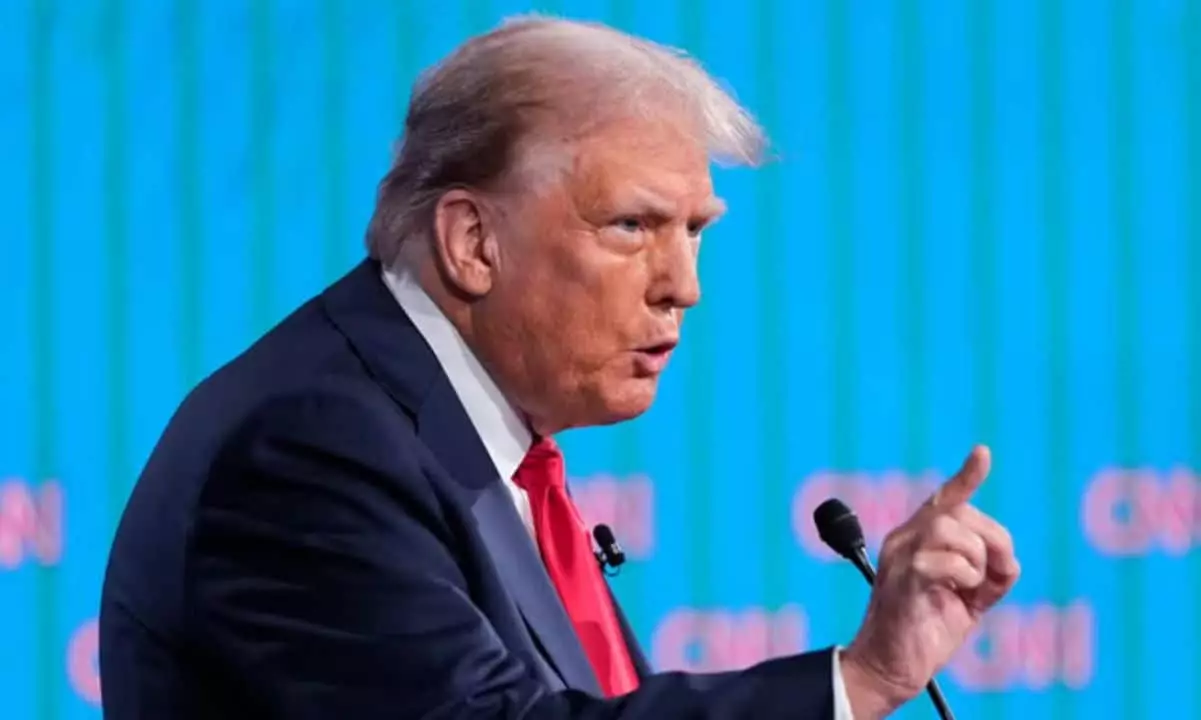The digital landscape is evolving rapidly, with cryptocurrency becoming a central figure in discussions surrounding finance, technology, and the future of transactions. Truth Social, the social media platform founded by Donald Trump’s Trump Media and Technology Group (TMTG), is now setting its sights on the cryptocurrency realm with an application to trademark a service named “TruthFi.” This initiative not only indicates TMTG’s ambition to diversify its offerings but also represents a significant shift in how traditional political figures, particularly Trump, engage with the digital economy.
TruthFi is positioned as a digital currency payment service, potentially streamlining cryptocurrency transactions for its users. The trademark application, filed on November 18, hints at a broader strategy that encompasses downloadable software geared towards facilitating digital wallet functionalities. However, the specifics of TruthFi remain obscured—no clear timeline has been outlined for its launch, nor the details of how the service will function. This nebulousness raises questions about the brand’s preparedness for entering such a volatile market.
TMTG has not had an easy financial journey, recently reporting significant losses—over $16 million in the second quarter of 2024, paired with a near-zero revenue of less than $1 million. These figures have fostered skepticism regarding the sustainability of Truth Social and the viability of its expansion into cryptocurrency. It is evident that the organization is under pressure to innovate and recover from financial instability, a situation exacerbated by reports of its struggles circulating in the media.
The pressure to perform might be influencing TMTG’s strategy to intertwine its core business with cryptocurrency. By launching TruthFi, the organization is likely hoping to tap into the growing interest in digital currencies and payment solutions amongst its user base. However, the key question remains whether this move can genuinely bolster financial health in a market marked by fierce competition and fluctuating demand.
In the broader landscape of cryptocurrency, competition is intense. TruthFi’s emergence would place it in direct rivalry with established players who have demonstrated resilience and adaptability in the space. Moreover, TMTG faces not only the challenge of market presence but also the uphill battle of establishing credibility in a field where trust in digital currencies remains a concern for many consumers.
Furthermore, the lesser-known World Liberty Financial (WLF)—another Trump-associated project—has struggled to attract interest, underscoring the challenges facing cryptocurrency initiatives, especially those tied to political figures. Despite launching the WLFI token, the sales performance remains lackluster, with reports indicating targets being significantly reduced amidst low demand. This scenario highlights the risks associated with entering the cryptocurrency market and raises concerns about the ability to translate brand recognition into substantial market success.
Despite these challenges, TMTG experienced a slight boost in its stock value—up nearly 2%—following the trademark filing for TruthFi. This outcome suggests that there may be some optimism among investors regarding the company’s new direction. With a current valuation of $6.5 billion, the potential for cryptocurrency services could reinforce TMTG as a competitive player in the digital economy, provided they can navigate the operational and regulatory landscapes effectively.
Nonetheless, the investor sentiment is fragile. The sordid history of TMTG’s financial performance combined with broader volatility in cryptocurrency markets creates an uncertain outlook. While Trump’s recent electoral victory might uplift investor confidence, it is critical to remember that success in political arenas does not automatically translate to business success.
TruthFi presents an intriguing proposition in the realm of digital currency and financial services. Nevertheless, the challenges inherent to both TMTG’s financial health and the competitive cryptocurrency landscape cannot be overlooked. As the organization proceeds, its ability to deliver a robust and trusted service will be key in determining whether it can transform its ambitious plans into reality or remain overshadowed by the ongoing difficulties in the market. Ultimately, the success of TruthFi will depend on more than just its branding; it will hinge on actual execution, user trust, and the company’s agility in adapting to a rapidly changing technological environment.














